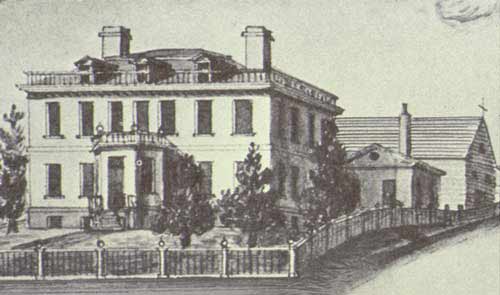In most of my writing, I try to stay away from difficult or controversial issues and instead focus on astrology and metaphysics. Yet, this is a site which discusses real historical figures, and there is not really any way to avoid these type of issues. If you turn more than two pages of any history book, you are bound to run across something that is truly horrid and barbaric. One of the barbaric features of the history of the United States was slavery.
Elizabeth Schuyler Hamilton’s Relationship with Slavery
At the time of the American Revolution, slavery was present in the North as well as the South. Elizabeth Schuyler Hamilton (“Eliza”) was raised with slaves in her household. Her father, Phillip Schuyler, was a prominent slaveholder in New York.
It is almost certain that Eliza managed slaves when she lived with her father. When she was young, she had a reputation of being a very efficient helper to her mother in running their household.
Her husband, Alexander, was a prominent member of the New York Manumission Society and a critic of slavery, but there is a possibility that he did own slaves while he was married to Eliza. The record is unclear.
At the end of her life, Eliza did speak out against slavery, but many of the letters that would reveal her private thoughts are lost to history. She did maintain a close friendship with Martha Washington, who was part of a large slaveholding estate.
In the light of current events, I briefly considered removing her from one of the highlighted heroines, but ultimately decided against it.

Privilege vs. Power
White women are in a strange position when it comes to issues of race in the United States. This is still true today, but it was even more true with respect to the historical issue of slavery.
There is no question that Eliza was a woman of privilege. She was born into a wealthy, prominent family. Her father owned slaves, and she almost certainly was responsible for supervising and managing them, at least the ones who worked in the household performing domestic duties. It is also quite likely that slaves cared for her as a child and helped raise her.
She also enjoyed a protected status, at least with respect to black men. On the other hand, these protections were because she herself was considered the property of white men. She had little to no protection with respect to her father or her husband.
Despite her privilege, her actual power was quite limited. She, personally, could not have owned any slaves until after the death of her husband. At that time, in New York, married women were not allowed to own any property. Indeed, anything that a woman owned before her marriage would become the property of her husband. She could influence her husband and her father, but she would not legally have been allowed to make any direct decisions about acquiring or freeing slaves.
Married women did not get the right to own property in New York until 1848, six years before Eliza died. It is unclear whether Eliza inherited any slaves from her husband after he died.
Women also had no power to directly impact the laws or the governance of the United States at that time. They could not hold public office or even vote.
Does that excuse whatever complicity Eliza had with the institution of slavery? I honestly don’t know. On the other hand, given her limited power and the fact that she did directly speak out against slavery when she was free to do so, I do not think that her involvement in the institution erases the good things that she did during her life.
Tarnished Heroines
As I mentioned before, when dealing with real historical people, it is inevitable that we will run across controversial figures. I don’t know that there is any way to avoid this.
The heroines I am choosing for this site are women who have done extraordinary things in difficult circumstances and who have claimed power in very feminine ways. Few, if any, of these women are angels or saints. Indeed, some of them were involved in some awful periods of history and committed horrid acts directly.
My inclusion of these women on this site is not intended in any way to condone any horrid things that they did or were complicit in.
We all need people to look up to and admire. If we insist that our heroines must be completely free from any taint of historical atrocities, I doubt we would find any.
Slavery was a dark shadow woven into the fabric of the United States, and this country has still not healed from it. It would be hard to find a white person, man or woman, from this time who was not at least complicit in this horror.
Even so, I believe that the stories of women from this era need to be told. I also believe that Eliza was an extraordinary woman in her own right and that she led a very interesting life worthy of a closer look.
See Main Article:
Elizabeth Schuyler Hamilton: Who Lives, Who Dies, Who Tells Your Story